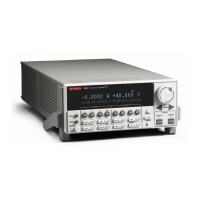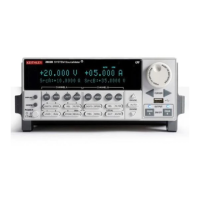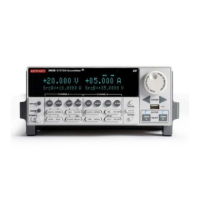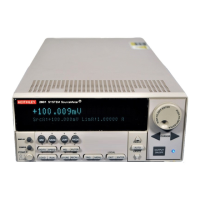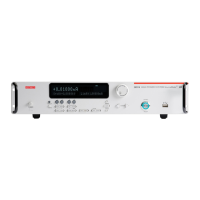• Make sure any test xture connected to the system protects the
operator from contact with hazardous voltages, hot surfaces,
and sharp objects. Use shields, barriers, insulation, and safety
interlocks to accomplish this.
• Cover the device under test (DUT) to protect the operator from
ying debris in the event of a system or DUT failure.
• Double-insulate all electrical connections that an operator can
touch. Double insulation ensures the operator is still protected
even if one insulation layer fails. Refer to IEC 61010-1 for
specic requirements.
• Make sure all connections are behind a locked cabinet door or
other barrier. This protects the system operator from accidentally
removing a connection by hand and exposing hazardous
voltages. Use high-reliability fail-safe interlock switches to
disconnect power sources when a test xture cover is opened.
• Where possible, use automatic handlers so operators are not
required to access the DUT or other potentially hazardous
areas.
• Provide training to all users of the system so they understand
all potential hazards and know how to protect themselves from
injury.
• In many systems, during power up, the outputs may be in an
unknown state until they are properly initialized. Make sure the
design can tolerate this situation without causing operator injury
or hardware damage.
Connect the instrument
Important test system safety information
This product is sold as a stand-alone instrument that may
become part of a system that could contain hazardous voltages
and energy sources. It is the responsibility of the test system
designer, integrator, installer, maintenance personnel, and
service personnel to make sure the system is safe during use
and is operating properly. You must also realize that in many
test systems a single fault, such as a software error, may output
hazardous signal levels even when the system indicates that
there is no hazard present. It is important that you consider the
following factors in your system design and use:
• The international safety standard IEC 61010-1 denes
voltages as hazardous if they exceed 30 V
RMS and
42.4 V peak, or 60 VDC for equipment rated for dry
locations. Keithley Instruments products are only rated for
dry locations.
• Read and comply with the specications of all instruments
in the system. The overall allowed signal levels may be
constrained by the lowest rated instrument in the system.
For example, if you are using a 500 V power supply with a
300 VDC rated switch, the maximum allowed voltage in the
system is 300 VDC.
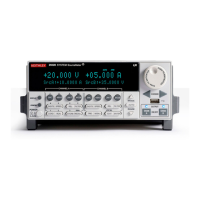
